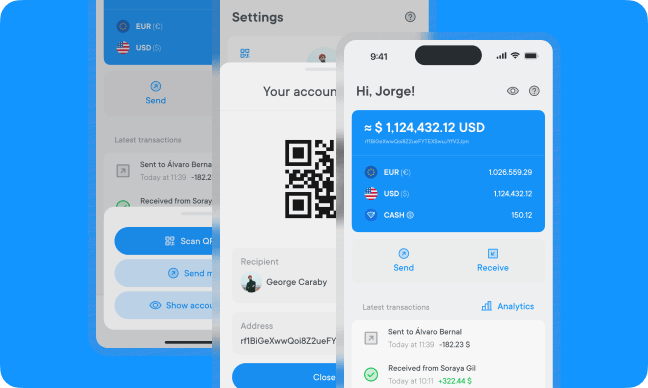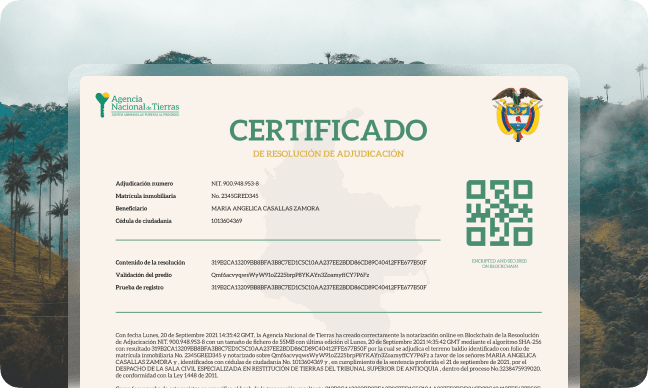Government & Public Sector
In the modern digital era, public institutions are facing increasingly complex challenges. Managing vast amounts of data, ensuring transparency, and maintaining trust are paramount in delivering effective public services.
Blockchain technology, characterized by its transparency and reliability, offers an innovative solution to these challenges. This groundbreaking technology empowers governments, central banks, and public sectors to revolutionize their services and processes, paving the way for a new era of trust, efficiency, and accountability








How governments apply blockchain
We at Peersyst recognize the pivotal role public servants play and the demanding agenda they shoulder. The challenge of innovating within tightly regulated environments and maintaining public trust is not lost on us. With extensive experience in successful government projects, we have honed the art of tailoring blockchain solutions to fit these unique constraints and demands. Our expertise can help enhance your services, bolster security, and foster trust and transparency.
Registry
Blockchain enhances public records management by securely storing immutable records like birth certificates and property deeds, ensuring data accuracy and simplifying access, which enhances public trust in governmental record-keeping.
Secure, digital voting processes
Blockchain enables secure, digital voting, offering a tamper-proof and transparent process that assures the integrity of every vote, reduces electoral fraud, and fosters confidence in democratic systems.
Digital Identity
Blockchain’s digital identity solutions offer secure, unforgeable identities, streamlining verification while protecting personal data, thereby reducing identity theft and enabling safe online interactions with public services.
Financial Inclusion
Blockchain technology fosters financial inclusion by providing secure, accessible financial services to unbanked populations, enabling essential transactions, credit access, and savings opportunities.
Reliability forms the core of blockchain technology. Its decentralized nature ensures resistance to system outages, guaranteeing the smooth and uninterrupted delivery of essential public services. The strong, built-in security measures significantly reduce the risk of data breaches, an increasingly important concern in our digitally connected world. Blockchain’s reliability brings about a level of resilience and security that’s unmatched, equipping public institutions with the tools they need to function effectively in a digital age.
Transparency is a vital attribute of blockchain technology and an instrumental feature for public institutions. The unparalleled visibility offered by blockchain technology ensures every transaction is traceable, verifiable, and indelible. This heightened transparency is critical in combating corruption, enhancing the quality and efficiency of public services, and nurturing trust between citizens and their governing bodies. It fundamentally transforms the way public institutions operate, promoting accountability at every level.
FAQs
Quick answers to questions you may have.
How does blockchain ensure data privacy in public services?
Blockchain can use advanced data encryption to ensure privacy in public services. While it enables transparency for necessary information, it keeps sensitive data secure and confidential, offering a balanced approach to data sharing and privacy.
Can blockchain technology be integrated with existing government IT systems?
Yes, blockchain’s API-enabled architecture allows full operation coverage, making it compatible with existing government IT systems. Its flexibility enables seamless integration, enhancing system capabilities without disrupting legacy infrastructure.
Will blockchain technology replace traditional banks?
Blockchain won’t replace traditional banks but will transform banking processes. It offers an additional secure and efficient layer for financial transactions, complementing existing banking services rather than replacing them.
How does blockchain contribute to sustainable development in public sectors?
Blockchain aids sustainable development by increasing operational efficiency, reducing paperwork, ensuring transparent resource allocation, and enabling traceable and accountable public projects, all crucial for sustainable growth in the public sector.




